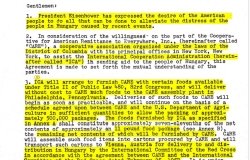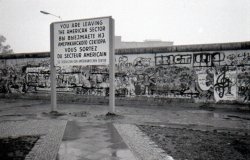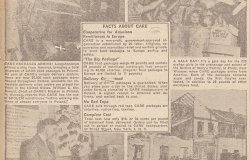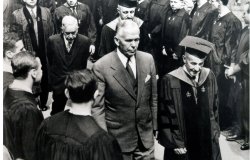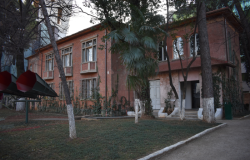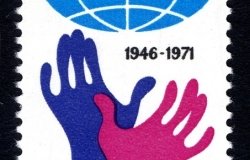CfP: The Great Transformation? Reassessing the Causes and Consequences of the End of the Cold War
The Department of International History of the Graduate Institute of International and Development Studies, with the support from the Fondation Pierre du Bois pour l’Histoire du Temps Présent, will host an international conference on the end of the Cold War in Geneva on September 24-26, 2015.
CALL FOR PAPERS
The Great Transformation?
Reassessing the Causes and Consequences of the End of the Cold War
The Department of International History of the Graduate Institute of International and Development Studies, with the support from the Fondation Pierre du Bois pour l’Histoire du Temps Présent, will host an international conference on the end of the Cold War in Geneva on September 24-26, 2015.
The conference seeks to bring together different perspectives on the end of the Cold War. The main aim of the conference is to move beyond identifying individual protagonists, while focusing on processes and interactions. At the moment, the state of research on the causes and consequences of the end of the Cold War – necessarily still at its initial phase – seems to have focused on isolated themes, largely independent and detached from each other. The conference seeks to act as a forum for bringing many of these strands together. We expect the main focus of the conference to be on the events, transformations and processes that took place in the 1980s. However, we also welcome proposals that interpret the end of the Cold War in a broader temporal context. Moreover, the conference will seek to open a window on the post-Cold War era, by searching for the roots of some of the issues that have dominated the international scene since the 1990s.
While not excluding proposals on any aspect related to the end of the Cold War, we particularly welcome proposals on the following broad themes and issues:
- United States foreign policy (e.g. towards the USSR, the Third World, Europe, arms control, human rights);
- Soviet foreign policy (e.g. towards the USA, the Third World, Europe, arms control, links with domestic challenges);
- The developments in and between Western and Eastern Europe;
- The impact of regional conflicts (e.g. Southwest Asia, Latin America, Africa);
- The role of high-level diplomacy and personalities;
- The influence of technology and information exchanges;
- The relationship between the Cold War and international, non-state and transnational actors and movements (e.g. terrorism, peace movements).
The deadline for submission of proposals (one-page abstract and one-page biography) is October 31st, 2014.
Proposals should be emailed to CW-Conference2015@graduateinstitute.ch
Selected participants will be notified by February 1st, 2015
Final papers should be submitted no later than August 31st, 2015
Related Programs

Cold War International History Project
The Cold War International History Project supports the full and prompt release of historical materials by governments on all sides of the Cold War. Through an award winning Digital Archive, the Project allows scholars, journalists, students, and the interested public to reassess the Cold War and its many contemporary legacies. It is part of the Wilson Center's History and Public Policy Program. Read more

History and Public Policy Program
The History and Public Policy Program makes public the primary source record of 20th and 21st century international history from repositories around the world, facilitates scholarship based on those records, and uses these materials to provide context for classroom, public, and policy debates on global affairs. Read more
